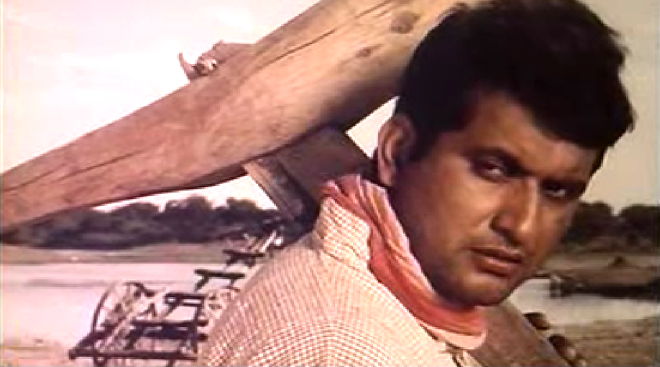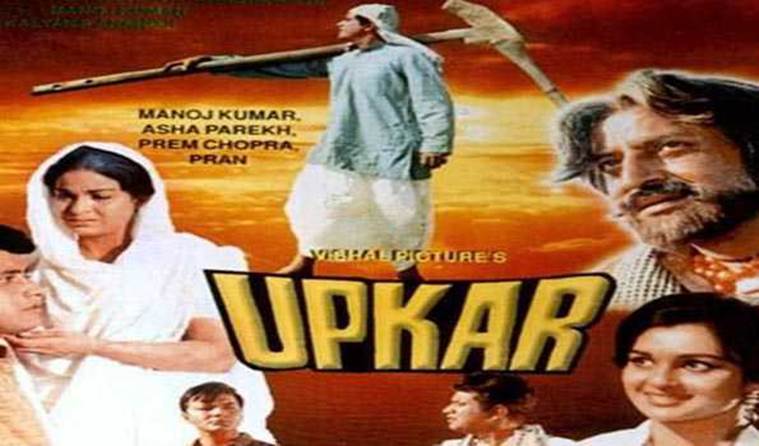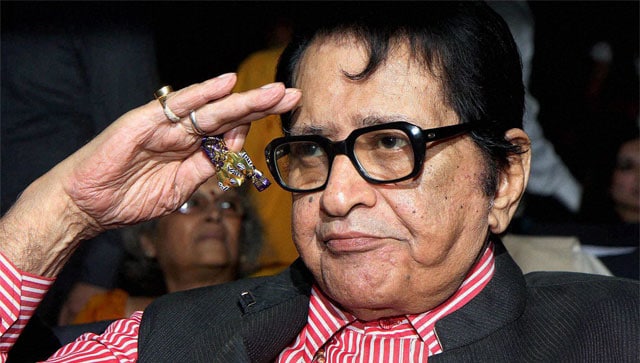Actor, filmmaker, and moral voice of Hindi film, Manoj ‘Bharat’ Kumar gave India not just cinema – but conviction. When he walked onto the screen, Manoj Kumar didn’t seem to play a role. He became the conscience of a scene – unshowy, earnest, and charged with purpose. And now, the lights have dimmed on a life that mirrored the aspirations of a nation.
The revered actor and director, affectionately called Bharat Kumar by generations of fans, passed away early Friday morning at age 87 in Mumbai. For Hindi cinema, his loss is seismic. More than a star, we have lost a storyteller who made patriotism poetic and ideals cinematic.
From Partition’s shadow to India’s screen identity
Born Harikrishna Giri Goswami on 24 July 1937 in Abbottabad – then part of undivided India – Manoj Kumar’s early years were touched by the Partition’s upheaval. His family fled to Delhi during the riots, and his infant brother died amid the chaos as doctors and nurses abandoned the hospital. The memory of that trauma left a deep, unspoken mark – one that perhaps surfaced, years later, in the intensity of his nationalistic films.
Inspired by Dilip Kumar’s role in Shabnam (1949), he adopted ‘Manoj’ as his screen name – but the persona he went on to create bore a signature all his own. Steely, soft-spoken, and always grounded, he seemed less like a film star and more like an everyman who stood up when it mattered.

Redefining what cinema could mean to India
Although he started his career in the late ’50s, his defining moment came with Shaheed (1965), portraying Bhagat Singh with dignified fury. But it was Upkar (1967) – his directorial debut, inspired by Lal Bahadur Shastri’s slogan ‘Jai Jawan Jai Kisan’ – that made him a national icon.
He wasn’t content to merely act. He wrote, directed, and shaped his films with thematic precision. Purab Aur Paschim (1970), Roti Kapda Aur Makaan (1974), Kranti (1981) – each of these combined message and mass appeal with unusual flair. He gave the commercial film a conscience and made audiences care not just about plot, but about principle.
His films didn’t just dominate the box office – they quietly entered our everyday lives. As children growing up in the Sixties and Seventies, we heard Manoj Kumar’s songs long before we saw his films. They were played at school functions, on Republic Day and Independence Day mornings, and during tributes to freedom fighters. Songs such as ‘Mere desh ki dharti…’, ‘Apni azadi ko hum…’, and ‘Hai preet jahan ki reet sada…’ became national staples – as familiar as the flag itself. They stirred us, softened us, and reminded us of who we were supposed to be. These were not just film songs, they were civic hymns.

He stepped into the soul of his roles
Unlike many contemporaries, Manoj Kumar never cultivated a ‘star’ persona. He submerged into his characters, letting the performance do the talking. He wasn’t flashy – and that, paradoxically, made him unforgettable.
Off-screen too, he exuded restraint and dignity. Famous for keeping a respectful distance from his co-stars, out of loyalty to his wife Shashi, he still maintained meaningful bonds. One of the most complex and enduring was with Asha Parekh.
They shared both friction and fondness. She helped him land early roles, supported his writing ambitions, and later starred in his directorial ventures – even when their on-set rapport had its hiccups. She skipped the Upkar premiere, upset with him. Yet, decades later, she remained a family friend. ‘She was the first to call and congratulate me on my wedding night,’ he once recalled. ‘She and Shashi stayed close ever after.’
Tributes to a cultural icon
As news of his passing spread, tributes came thick and fast.
Prime Minister Narendra Modi wrote on X: ‘Manoj Ji’s work reflected his patriotic spirit and will inspire generations to come.’
Akshay Kumar added: ‘I learnt from him that love for country is the deepest emotion. If we actors won’t show it, who will?’
Anand Mahindra captured a nation’s sentiment: ‘He was part of every household. His films weren’t just movies – they were moments we shared as families.’

A life incinema
Awards came in due course – the Padma Shri in 1992 and the prestigious Dadasaheb Phalke Award in 2015. But Manoj Kumar’s real influence lay beyond trophies. His work didn’t just entertain – it awakened.
He believed cinema could be a vessel for responsibility. That you could wrap a lesson in a song, a protest in a monologue. He wasn’t naive – he was deliberate. And therein lay the power of his films.
The curtain falls, the light endures
To say his death ends an era would be too tidy. He wasn’t a chapter – he was the soul between the lines. A figure who made audiences not just cheer but think. In classrooms, in village halls, on national holidays – his voice still echoes.
He is gone. But Bharat Kumar – the man who made India his screen, and gave its people a sense of purpose – remains.




